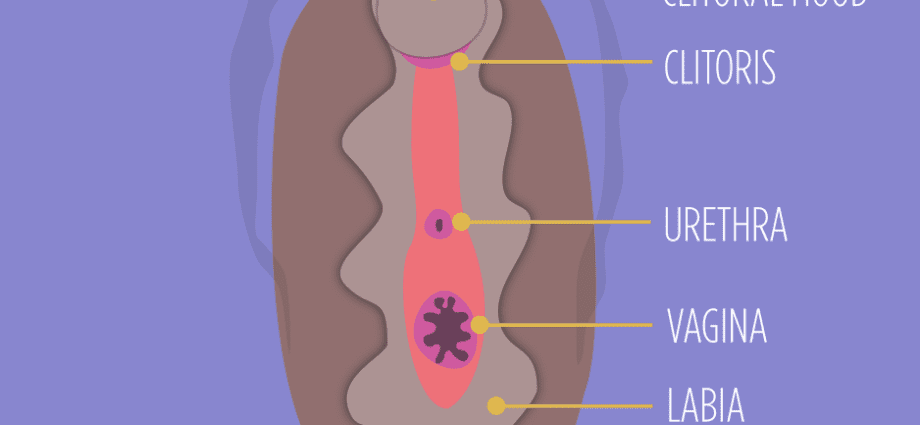Vagina, vulva, clitoris: what to avoid?
The internal and external genitalia are fragile. Certain habits or certain gestures are to be avoided because they are irritating or even dangerous for the vulva, the clitoris and the vagina.
Vaginal flora, guarantor of good vulvovaginal health
The vaginal flora, also called vaginal microbiota, is normally made up of beneficial bacteria: bacilli. Among these microorganisms, we find lactobacilli, or Döderlein flora, which manufacture lactic acid ensuring the acidity essential to the vaginal environment.
The role of vaginal flora
The vaginal flora is a real bulwark against pathogenic germs. It ensures the good health of the vagina whose balance is particularly vulnerable. Certain factors can lead to a decrease or even disappearance of protective lactobacilli. The balance of the flora is upset: it is the dysbiosis of the vaginal microbiota. Dysbiosis is the source of everyday inconvenience such as irritation, itching of the vulva or feelings of discomfort but also a risk factor for vaginal yeast infection. This vaginal infection is linked in the majority of cases to the proliferation of candida albicans, which is naturally part of the vaginal flora in small quantities.
Avoid: what unbalances the vulvovaginal flora
In order not to unbalance the flora of the vulva and the vagina, it is recommended not to wash with acidic soaps and not to do vaginal douches which destroy the vaginal flora and thus increase the risk of vaginal yeast infection. Only the vulva should be washed daily to remove excess surface hydrolipidic film produced by sebaceous glands, dead skin cells and sweat. Washing is ideally done with a soap-free cleaner or Syndet. These products respect the skin hydrolipidic film better. Their pH is weakly acidic, close to skin pH. Washing should be followed by thorough rinsing with water and thorough drying.
Habits to avoid to protect the vulva and vagina
The vulva and vagina are fragile and can be easily irritated. Some habits should be abandoned to prevent irritation but also vaginal yeast infection and infections. The following behaviors and actions must therefore be avoided:
- Do not change your underwear daily. Underwear should be changed every day;
- Wear synthetic panties. Cotton should be preferred. Cotton underwear should be washed at 60 ° C and ironed with a very hot iron;
- Sleep with panties on. Better to sleep without underwear to promote air circulation;
- Keep your swimsuit wet. This results in maceration which can lead to yeast infection.
- Wear tight pants, leggings and tights;
- Put perfume or deodorant on the sex or use bubble baths: these are irritating or even allergenic products;
- Use antiseptic cleansers every day. Antiseptic cleansers destroy the microbial flora and reduce the natural local defenses;
- Depilate the entire sex. The hairs have a role of protecting the vulva. The bristles have a particular hydration role. Dry skin irritates more easily. It is recommended to cut pubic hair with a scissor rather than using a razor for partial waxing;
- Do not wipe back and forth after a bowel movement. Wiping from the vulva to the buttocks helps prevent the rise of intestinal germs in the genital tract;
- Not washing your hands before and after using the toilet, and not washing your hands and genital area before and after sex.
Not changing tampons often enough: danger
Not changing your tampon every 4 to 6 hours can be dangerous. The risk of staphylococcal toxic shock syndrome associated with the use of periodic tampons increases by two when the tampon is worn for more than six hours, and by three when the tampon is worn overnight. To limit the risks of toxic shock syndrome (SCT), it is recommended to change your sanitary pad every 4 to 6 hours, to wash your hands before and after changing sanitary protection and to wear a sanitary napkin or a pad instead. slip overnight. (1) These instructions also apply to the menstrual cup (cup).
Not using condoms can harm the vulva and vagina
Wearing condoms protects against sexually transmitted infections (STIs). If you have more than one sex partner, it is recommended that you remember to wear condoms. They protect you from the risk of condylomata (external genital warts related to infection with the Human Papilloma Virus (HPV). Condylomata are the most common sexually transmitted viral infections. They are localized in women on the vulva, perineum. and the perianal region. Some papillomaviruses pose a risk of cancer of the cervix. The best prevention against vulvar warts, called condylomata, is to be vaccinated against HPV. Condoms also allow prevention other sexually transmitted infections, some of which give symptoms in the vagina: genital herpes, chlamydia, syphilis.
Clitoris, vulva: avoid piercings
Genital piercings can be done at the level of the clitoris, the hood of the clitoris, the labia minora or the labia majora. They are not recommended from a health point of view: genital piercings can first of all interfere with mechanical contraception (diaphragm , condom). Then, piercing intimate areas involves infectious risks. These areas are particularly sensitive and the organs are formed of erectile bodies containing cavernous bodies engorged with blood (the clitoris in women) which increases the risk of occurrence and the severity of bleeding accidents and infections. (3)










